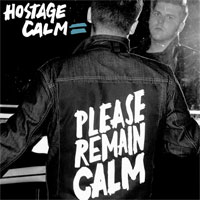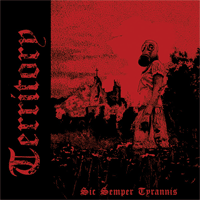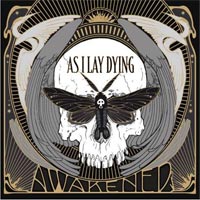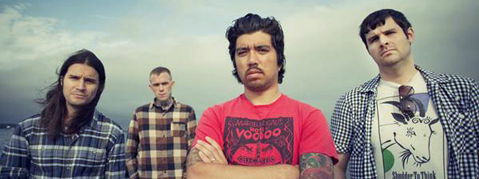
CONVERGE
The nuance between being a “heavy” band and being an “intense” band is an overlooked distinction. ATREYU is heavy. CONVERGE is intense. Few bands find a similar kind of headspace like CONVERGE does. Even extreme metal/grind bands, who run at a stunningly fast clip, often lack the internal compass that directs music in such it way that it feels like the band’s songs are boring through the listeners skin, zeroing on a way out.
I have studied CONVERGE in detail over the 11+ years of running of Pastepunk. Each of their full-lengths this decade sticks out as a milemarker. Jane Doe was so abrasive to my ears when it came out that I just didn’t know what to make of it, besides hating the recording style. It was a record I grew to love only because the more I read about it, and the more I listened to it, the easier it was to piece together the emotional fireworks behind it. The three subsequent full-lengths on Epitaph have been nothing short of limit-pushing. When Axe To Fall detonated before an eager public, it was no surprise that once again, CONVERGE stepped up its game.
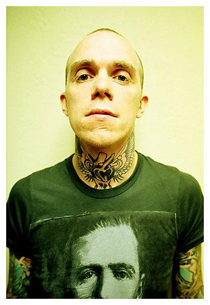 The familiar feeling of a guitar-invoked nerve response was back; an uncontrollable physical reaction to music with such compelling force that idle listening was simply not possible. That’s what it’s all about, isn’t it? Not a t-shirt, not a test press, not even a fleeting live moment captured on YouTube… it’s that sensation that runs through limb to limb, across the chest, down the legs and back, that makes you convinced you’ve found something that speaks in so much more meaning that words. Axe To Fall is some good stuff. James Hepplewhite and I put together some questions for lead singer/lyricist Jacob Bannon, who you also may recognize as the co-owner of Deathwish Records. Not surprisingly, the straight-forwardness of Bannon’s responses reflect a band that would rather put their thoughts into their art than spell out everything for a nagging press.
The familiar feeling of a guitar-invoked nerve response was back; an uncontrollable physical reaction to music with such compelling force that idle listening was simply not possible. That’s what it’s all about, isn’t it? Not a t-shirt, not a test press, not even a fleeting live moment captured on YouTube… it’s that sensation that runs through limb to limb, across the chest, down the legs and back, that makes you convinced you’ve found something that speaks in so much more meaning that words. Axe To Fall is some good stuff. James Hepplewhite and I put together some questions for lead singer/lyricist Jacob Bannon, who you also may recognize as the co-owner of Deathwish Records. Not surprisingly, the straight-forwardness of Bannon’s responses reflect a band that would rather put their thoughts into their art than spell out everything for a nagging press.
Pastepunk: In doing press for Axe to Fall, you have talked about how some of the songs on the full-length had their origins in material originally recorded years ago in collaborations with non-Converge members. Is that something unique to just the new release, or have other Converge full-lengths had parts to them that were in some way ‘recycled’?
Jacob Bannon: The collaborations, yes, they were a new thing for us as a band. Introducing outside people to our creative process was something we had in mind since 2004. Our experiments with that began with joint recordings with the CAVE IN guys. Some of that material, at least the foundation of it, is present in some of the songs on Axe To Fall.
Having song ideas exist for years at a time? No, that is not new thing for us. Since we are always writing on our own between releases, musical ideas are always floating around in some form. Some songs will take just hours to come together, others, years literally. We’ve just never been too predictable in that department.
Pastepunk: A little while ago Pitchfork wrote that “Converge is this generation’s BLACK FLAG.” How long before we see that plastered across all of your press releases and sales sheets? What is your personal reaction when you read or hear something like that? Does that differ at all from the band’s collective reaction?
Bannon: Funny stuff. That’s not necessarily our collective opinion of ourselves. We don’t attempt to emulate other artists or anything like that. Comparisons are interesting, but they are not something that should be truly defining of a band. That’s the same way I feel about genre classifications, sub-genres, etc. In my opinion, people use these comparisons to define things that they don’t take enough time to really experience and/or understand. So yeah, we don’t see ourselves as Black Flag, just as we don’t see ourselves as any sort of comparison that comes along. We see ourselves as ourselves, that’s all.
Pastepunk: Converge recently rolled through DC (well, Northern Virginia specifically) with a show at the Patriot Center, a 10,000 seat venue, as the band played support to MASTODON and DETHLOK. That’s gotta be different for you guys… logistically what’s new about being on a tour that large?
Bannon: Large rooms bring different sort of problems and limitations than smaller venues, that’s for sure. They both have their positives and negatives. We just go out there and do our thing regardless. I would say that the only true downside to large venues is that fast and abrasive music is tough to decipher in those kinds of environments. So sound is a challenging thing for sure (Nothing about the size of the deli plate? Ed.).
Pastepunk: Axe to Fall’s first four songs comprise ten minutes of music that is unlike anything else the band has ever written – it’s a series of insane guitar leads that one-up one another… were the four songs written together with an idea keeping them in the same sequence? Are they to be played live in that order?
Bannon: No. The songs were written far apart from one another. We did spend a great deal of time sequencing the album just as we do every album. So that frantic pacing was intentional. Live, our sets our mainly limited by tunings just like any band that utilizes multiple tunings. We group songs together in that setting because of that.
Pastepunk: As a segue to the next series of questions, how has being on Epitaph shaped the way Converge currently exists, and what traits from Epitaph, if any, have rubbed off towards running Deathwish?
Bannon: All label experiences that I have been a part of have helped Deathwish evolve for sure. Brett [Gurewitz] is a great person and runs the best label we’ve ever worked with. He’s been very helpful and supportive with a handful of things throughout the years and I’m super appreciative of that.
Pastepunk: What are you proudest of in (roughly) 10 years of Deathwish Inc.? Are there things that label did early on that you absolutely, positively sure you would never do now?
Bannon: I am just happy that we have built this on our own. Tre [McCarthy] and I had a collective vision for a label/brand, and Deathwish is that vision. We take things one day at a time and are just grateful to have been able to build what we’ve built. There are massive highs and crushing lows that come with running an independent record label. It’s all part of it. It’s a labor of love. I wouldn’t want it any other way.
Pastepunk: Positive side of the coin: What do you see as milestones within the hardcore community over the last decade? Is this even measurable?
Bannon: Milestones? I’m not sure what you mean by that. Deathwish has had the pleasure of releasing a wealth of music that has been meaningful to us as listeners, so that’s a positive thing. Hopefully there are others that share a love for that music as well.
Pastepunk: On the negative side of that same coin: Do you ever get worried that Deathwish ends up encouraging vinyl fetishism with crazy limited color variations? Do you a fear a vinyl backlash, which seems to be bubbling up in tandem with the emergency of a site or company like Vinyl Collective?
Bannon: Vinyl is just a media like any other media. It’s always been part of the independent music community since I’ve been involved. It’s importance and the role it plays within the community will always be in flux in some way. Do I fear a backlash? No. Because I view it as just a media, it’s not the heart of anything. The music and the art is the message, not the media.
Pastepunk: Does most of your artwork become integrated into Deathwish somehow, or can a separation be maintained?
Bannon: Deathwish artists are clients of my art and design, just like any of my independent clients. The only difference is that the bands associated with Deathwish aren’t compensating me for those efforts as outside clients do. When I work for Deathwish those artists aren’t charged, it’s just part of what I can offer to the affiliated bands if they desire it. So yeah, that’s a separation there, or at least a difference. There has to be or I wouldn’t be able to live and pay my bills.
Pastepunk: What’s one project (musical, visual) you wish you could get to but can’t, for whatever reason, find the time?
Bannon: I tend to put my own personal work on the back burner, musically and visually, putting Converge and Deathwish undertakings first. Though I helped build Deathwish to have my own platform to release my own music, I never wanted it to be about me alone. Bands entrust us to work for them, so they will always come first. My own projects are secondary to that, always will be. I’ll get to them though all one day though…
Pastepunk: What’s the lucky release to have the number DWI100?
Bannon: BLACKLISTED No One Deserves To Be Here More Than Me 12″LP. No other band deserves the release number any more in my opinion.
- Photo of Jacob Bannon by Ryan Russell, courtesy of myspace.com/converge

